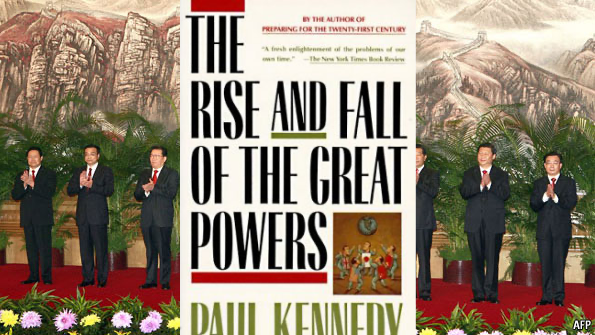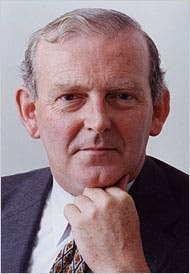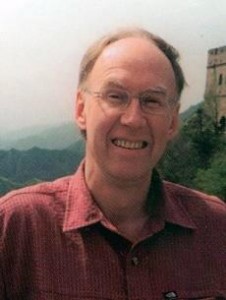

The Rise and Fall of Great Powers, including China and the U.S., in historical perspective
August 3, 2020 @ 5:30 pm - 7:00 pm
| FreePaul Kennedy’s book, The Rise and Fall of the Great Powers : Economic Change and Military Conflict from 1500 to 2000, a magisterial survey of European imperial competition, was published in 1987. It made a considerable impression in both academic and policy circles, because of its brilliant synthesis of modern history, and because of its powerful thesis about the interdependence of economic productivity and military dominance. The final chapter, in particular, incited vigorous debate, because it forecast the relative decline of the United States and the rise of China in the twenty-first century.
Now, over thirty years later, how well has Kennedy’s analysis held up? Translated into Chinese in 2006, the book inspired in China equally animated discussion about China’s future role in the world system of powers. Today, viewing the precipitous decline of U.S global influence in many economic and political areas, and the increasing aggressiveness of Chinese military and economic goals, Kennedy’s argument has even more salience.
In this seminar, Peter C. Perdue and Paul Kennedy will discuss with the students how Kennedy’s analysis of the close connection of economic and military power, his thesis of how “imperial overreach” causes the decline of great powers, and his projection of future rebalancing of geopolitical relationships can inform our understanding of the U.S. and China’s stature in the world.
Also recommended as supplementary reading is the Cambridge military historian Correlli Barnett’s The Audit of War, which analyzes incisively the causes of Britain’s decline from great power status after the end of the second World War.
Readings:
Kennedy, P. (1987). The Rise and Fall of the Great Powers, excerpts.
Barnett, C. (1986). The audit of war : the illusion & reality of Britain as a great nation.New York, Macmillan. excerpts
This seminar will be conducted online. Readings will be provided in advance of the seminar, and all participants are asked to complete the readings and to participate in the discussion.
Our Professors:
Paul Kennedy, J. Richardson Dilworth Professor of History, Yale University
Professor Kennedy is internationally known for his writings and commentaries on global political, economic, and strategic issues. In addition to his Professorship, he is Director of International Security Studies at Yale, Distinguished Fellow of the Brady-Johnson Program in Grand Strategy, and coordinates the ISS programs funded by the Smith Richardson Foundation.
He obtained his BA at Newcastle University and his DPhil at the University of Oxford. He is a former Fellow of the Institute for Advanced Studies, Princeton University, and of the Alexander von Humboldt-Stiftung, Bonn. He holds many honorary degrees, and is a Fellow of the Royal Historical Society, the American Philosophical Society, and the American Academy of Arts and Sciences. He was made Commander of the Order of the British Empire (C.B.E.) in 2000 for services to History and elected a Fellow of the British Academy in June 2003.
Prof. Kennedy’s monthly column on current global issues is distributed worldwide by the Los Angeles Times Syndicate/Tribune Media Services. He is the author or editor of nineteen books. His best-known work is The Rise and Fall of the Great Powers, which provoked an intense debate on its publication in 1988 and has been translated into over twenty languages.
In 1991, he edited a collection entitled Grand Strategies in War and Peace. He helped draft the Ford Foundation-sponsored report issued in 1995, The United Nations in Its Second Half-Century, which was prepared for the fiftieth anniversary of the UN. Prof. Kennedy’s most recent book Engineers of Victory, history through the eyes of problem-solvers during the Second World War, was published in 2013. He is currently writing a book about seapower and global transformations during World War Two.
Peter C. Perdue, Professor of History, Yale University.
Professor Perdue has taught courses on East Asian history and civilization, Chinese social and economic history, the Silk Road, and historical methodology. He is a member of the American Academy of Arts and Sciences. His first book, Exhausting the Earth: State and Peasant in Hunan, 1500-1850 A.D. (Harvard University Press,1987), examined long-term agricultural change in one Chinese province. His second book, China Marches West: The Qing Conquest of Central Eurasia (Harvard University Press, 2005), discusses environmental change, ethnicity, long-term economic change and military conquest in an integrated account of the Chinese, Mongolian, and Russian contention over Siberia and Central Eurasia during the seventeenth and eighteenth centuries. He is a coeditor of two books on empires: Imperial Formations, (SAR Press, 2007) and Shared Histories of Modernity, (Routledge, 2008), and a co-author of Global Connections, a world history textbook forthcoming from Cambridge University Press, and Asia Inside Out, three volumes on inter-Asian connections forthcoming from Harvard University Press. His current research focuses on Chinese frontiers, Chinese environmental history, and the history of tea. Professor Perdue has taught in EverScholar model courses in the past, sits on the EverScholar Advisory Board, and participates actively in the EverScholar Google Group.
This seminar is full. Please register for one of our other fantastic seminars!

